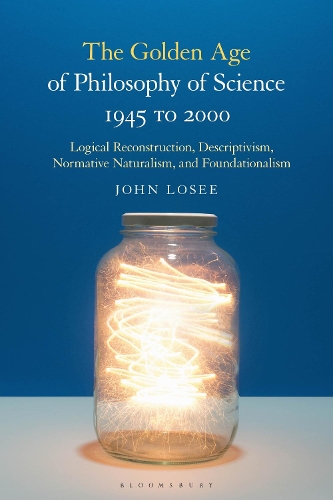
The Golden Age of Philosophy of Science 1945 to 2000: Logical Reconstructionism, Descriptivism, Normative Naturalism, and Foundationalism
(Hardback)
Publishing Details
The Golden Age of Philosophy of Science 1945 to 2000: Logical Reconstructionism, Descriptivism, Normative Naturalism, and Foundationalism
By (Author) Professor John Losee
Bloomsbury Publishing PLC
Bloomsbury Academic
27th December 2018
United Kingdom
Classifications
Professional and Scholarly
Non Fiction
Philosophy of science
Philosophy
501.0904
Physical Properties
Hardback
328
Width 156mm, Height 234mm
635g
Description
This book offers the reader a guide to the major philosophical approaches to science since World War Two. Considering the bases, arguments and conclusions of the four main movements Logical Reconstructionism, Descriptivism, Normative Naturalism and Foundationalism John Losee explores how philosophy has both shaped and expanded our understanding of science. The volume features major figures of twentieth century science, and engages with the work of previous philosophers of science, including Norman Campbell, Rudolf Carnap, Ernest Nagel, Karl Popper, Richard Dawkins, and John Worrall. In particular, The Golden Age of Philosophy of Science, 1945 to 2000 aims to answer the following questions: How should competing philosophies of science be evaluated Should philosophy of science be a prescriptive discipline Can philosophy of science achieve normative status without designating trans-historical evaluative principles And finally, how can understanding the history of science aid us in analyzing the philosophy of science In answering these questions, this book shows us why we understand science the way we do. The Golden Age of Philosophy of Science 1945 to 2000 is essential reading for students and researchers working in the history and philosophy of science.
Reviews
[Losee] gets better and better in delivering complex historical positions in an actualist framework ... Be as it may, put it on your bookshelfit looks amazing, contains no typos, and will be handy on several occasions. * The Rational Reconstruction of the History of Philosophy of Science *
Author Bio
John Losee is Emeritus Professor of Philosophy at Lafayette College, USA.
